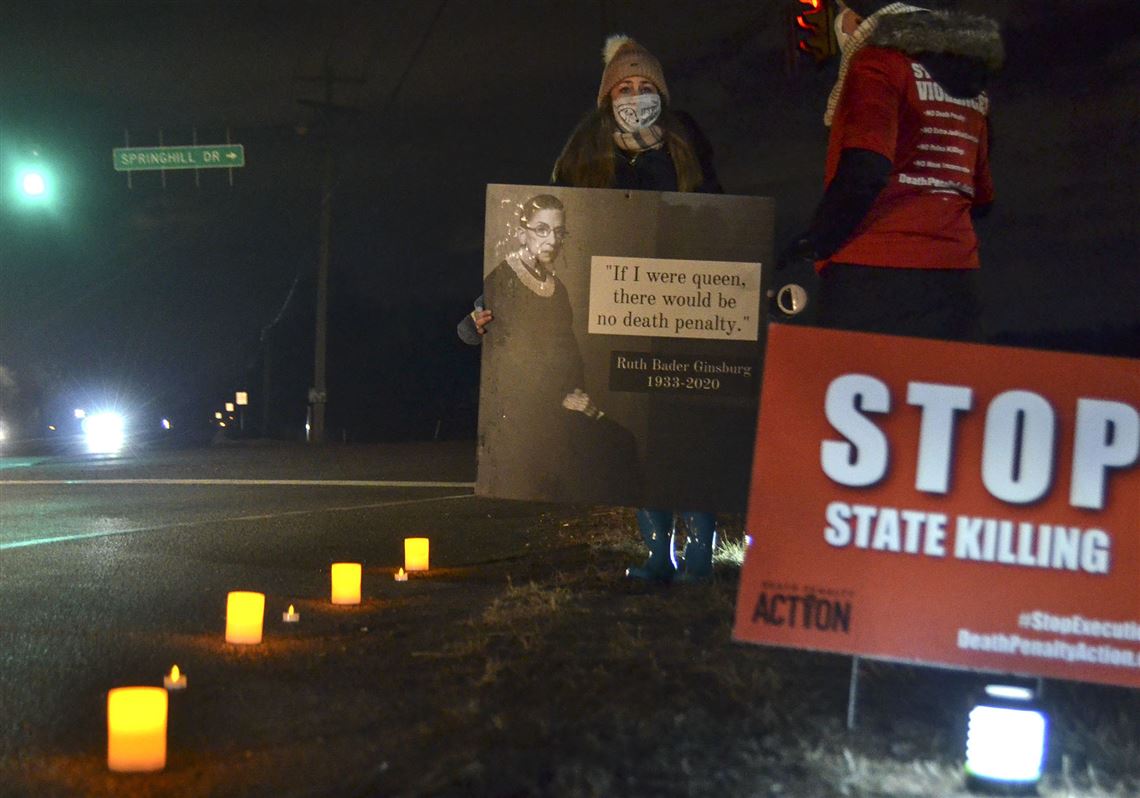
It’s time to abolish the death penalty
THE EDITORIAL BOARD
Pittsburgh Post-Gazette
DEC 22, 2021
Quietly and without fanfare, the death penalty in the United States is dying, a trend Pennsylvania should applaud and encourage by abolishing its death penalty statute. With U.S. public support for capital punishment waning, five states and the federal government carried out 11 executions this year, the fewest nationwide since 1988.
In the last decade, seven states have abolished capital punishment. The 27 states that still have death penalty laws use them less frequently, as local prosecutors become increasingly mindful of the enormous costs of trying and defending capital cases, and the real possibility of executing the innocent.
Additionally, three states with death penalty laws, including Pennsylvania, have moratoriums on executions. In pausing executions, states have cited, among other things, egregious racial disparities and the failure of capital punishment to deter violent crime.
The 11 executions in 2021, down from 17 in 2020, include three federal executions in January, part of an 11th-hour killing spree by the Trump Administration, the first federal executions in 17 years.
Aside from a spate of 13 federal executions under President Donald Trump, a national movement to end capital punishment has grown since 1999, when executions peaked at 98.
President Joe Biden, a former death penalty supporter, has called for ending the federal death penalty. This year, Virginia became the first Southern state, and the 23rd nationwide, to abolish capital punishment. Since 2011, Illinois, Connecticut, Maryland, New Hampshire, Delaware and Colorado also have scrapped the death penalty.
Morally and practically, the arguments against the death penalty are compelling.
Since 1976, when the U.S. Supreme Court reinstated capital punishment, more than 400 people have been sentenced to death in Pennsylvania, at a cost of $1 billion, former Pennsylvania Auditor General Eugene DePasquale reported in 2020. That resulted in only three executions. Another 10 death row prisoners were exonerated. Others were resentenced to mandatory life.
Nationwide, 180 prisoners on death row were found to have been wrongly convicted.
Prisoners spend an average of nearly 20 years on death row, as their cases wind through the appellate courts. Capital cases, often handled by taxpayer-funded public defenders, demand more expert witnesses, investigations and evaluations; they include automatic rights to appeal and require an additional defense attorney for sentencing. That’s money states could spend on victims’ services and real public safety measures.
Despite Pennsylvania’s moratorium on executions, imposed by Gov. Tom Wolf in 2015, capital cases continue to be tried and appealed in this state.
Pennsylvania has 115 prisoners on death row, about half of whom are Black. By contrast, African Americans make up 12 percent of the state’s population.
No credible evidence – none – shows the death penalty deters violent crime or achieves any social good.
When Gov. Wolf leaves office in January 2023, his moratorium on executions expires. To prevent more executions and excessive legal costs, Pennsylvania legislators should approve bipartisan bills to abolish the state’s death penalty law and move the nation closer to ending this barbaric, impractical and ineffective practice.
First Published December 22, 2021
No comments:
Post a Comment